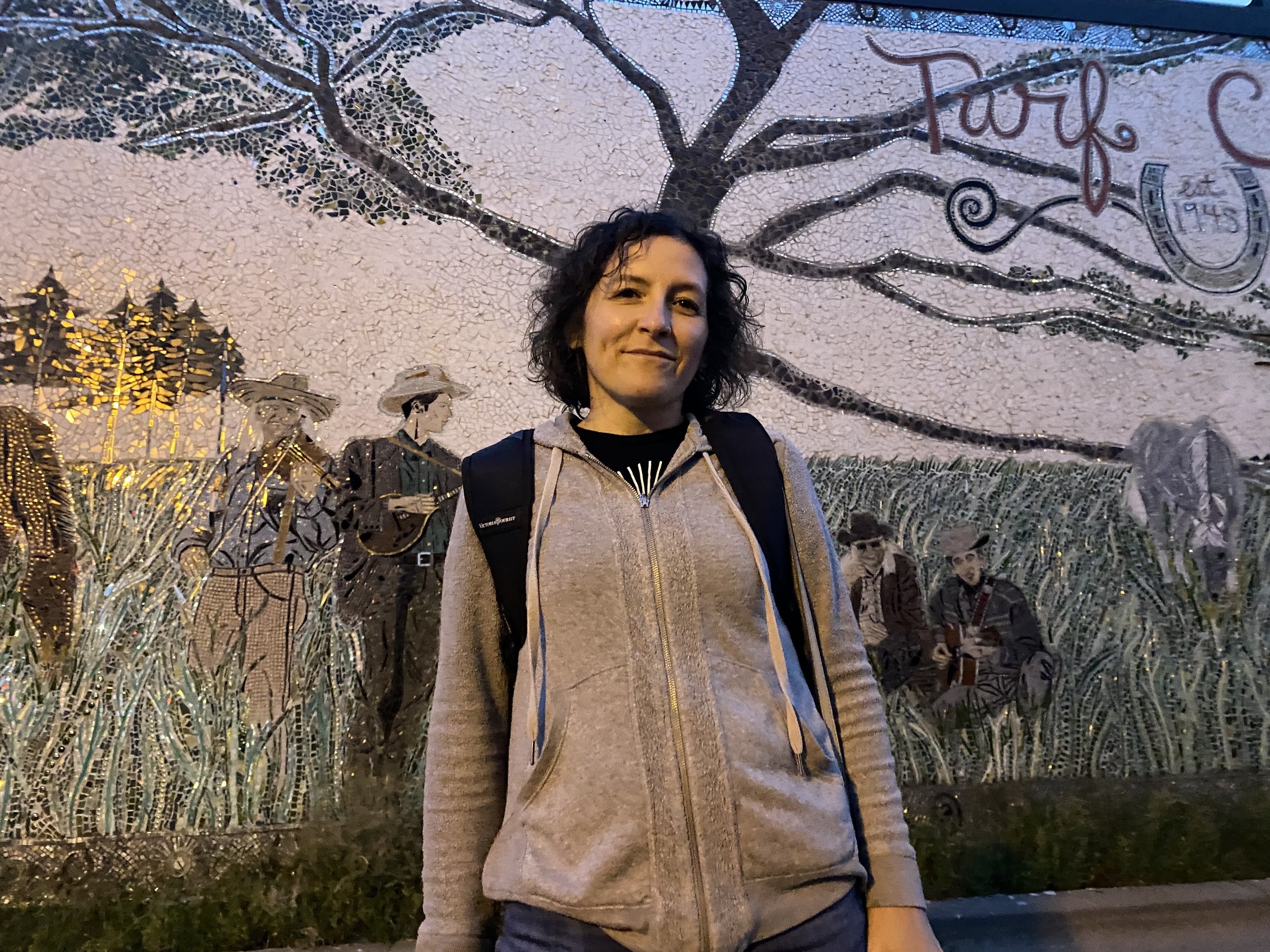Music Review: Jake and Ira, The Cabin in the Valley
Jake and Ira Breathe New Life Into Old-Time Music
This might be slightly surprising to hear from someone steeped in old-time country music from birth, but bluegrass has never been my thing, really. I like it, and I have huge respect for the virtuosic skills required—it’s the speed metal of country music!—but sometimes the wall of sound from four or more string instruments being plucked unbelievably fast along with four- or even five-voice harmony is almost a little numbing.
So, I was pleasantly surprised a couple years ago to discover the stripped-down yet faithful style of Jake and Ira. Saskatchewan multi-instrumentalists Jake Vaadeland and Ira Amundson come from long lines of musicians and it shows in their prodigious talent, which has been on display since at least their early teens, maybe longer.
Often playing as a duo, switching between guitars and banjos and taking turns singing lead, there was something fresh and exciting about the way they performed the old bluegrass classics. Their first CD, Dueling Banjos, featured popular covers that even a very casual bluegrass listener like me recognized and enjoyed.
They’ve taken it to the next level with their new album, The Cabin in the Valley, which came out in late 2020. A mix of originals and covers, bluegrass and old-time country, this record finds Jake and Ira (joined by Jaxon Lalonde on bass) coming into their own—bringing a fresh perspective to old-time country and bluegrass while preserving the old sound they clearly respect so much.
The first song on the record is a great example: “Every Night I Have a Dream,” a sweet ballad about unrequited love written by Vaadeland, could be an overlooked gem straight out of the 1940s. And Vaadeland’s lead vocals would be at home in the 1950s—he’s still in his teens but developing a rich tone reminiscent of Johnny Horton or Stonewall Jackson.
Not to neglect their bluegrass chops, Jake and Ira also include a couple of Earl Flatt and Lester Scruggs instrumentals, “Randy Lynn Rag” and “Farewell Blues” (the latter a 1920s jazz tune that Flatt and Scruggs adapted for banjo). Featuring just a banjo, guitar and bass, the songs are lively, crisply executed showcases of just how damn good Jake and Ira are.
It was sometimes hard to distinguish between the originals and covers, but I recognized one song immediately: “Jimmy Brown the Newsboy.” My parents would frequently sing snippets of this song around the house (quite tunelessly, if I’m being honest) when I was a kid. I’m actually not sure I’d ever heard a real version of it, or even the entire song, before Jake and Ira—the plot twist in the final verse was a genuine surprise to me! (No spoilers here—go listen to it to find out for yourselves.)
I didn’t recognize “Homestead on the Farm,” but my partner did—which even she found a little odd since she didn’t grow up listening to country music or hear it much before I came along. I guess it’s just one of those songs that’s seeped into the collective unconscious! Both this and “Jimmy Brown” are sung by Amundson, who has an appealing rasp under his otherwise smooth tenor, like the whisper of a needle on a well-loved record.
Amundson has a songwriting credit on the record too: “Fine Moonlight,” a wistful tale of a wanderer dreaming of a faraway loved one. Vaadeland provides some serious banjo licks, a striking counterpoint to Amundson’s poignant vocals.
“Great Joy and Happiness” and “I’ll Not Pass Judgment” are both gospel originals written by Vaadeland. Being an atheist doesn’t stop me from loving country gospel—there are so many relatable emotions and great stories in the songs. I was especially taken with “I’ll Not Pass Judgment,” an unusually introspective song about acceptance and, you know, not hating people. “How can I judge and bring down my neighbor and expect a reward on that day?” is a sentiment you don’t hear too often in gospel, or in public religious expression as a whole these days, but it’s very welcome.
It wouldn’t be a country record without a cheatin’-heart song, and Jake and Ira oblige with “I’ll Go Stepping Too.” First released in the 1950s by Flatt and Scruggs, it’s a foot-tapping classic about the best kind of revenge—going out and having fun—with some pretty sick burns on the cheating lover (“You tell me there are more fish in the sea / but the bait ain’t what it used to be”).
“The Cabin in the Valley,” penned by Vaadeland, is a fitting summation of the record and of Jake and Ira’s ethos. The album cover features a stylized image of a real log cabin built by Vaadeland himself. According to the liner notes, “The cabin is where Jake and Ira first learned to sing together, and so, became the birthplace of the original Jake and Ira sound.”
That real-life building, the album cover, and this song reflect Jake and Ira’s love of Saskatchewan nature and their dedication to preserving history and tradition. At one point Vaadeland sings, “The cabin in the valley keeps the old-time way alive.” Couldn’t have said it better myself!
Jake and Ira’s The Cabin in the Valley is available on the usual streaming platforms, but why not go a bit more old school?
Carol Roth is a full-time marketing copywriter and the main music journalist and social media publicist for Adventures in Americana. In addition to studying the guitar and songwriting, Carol’s additional creative side hustle is writing self-proclaimed “trashy” novels under the pseudonym @taberkeley!


